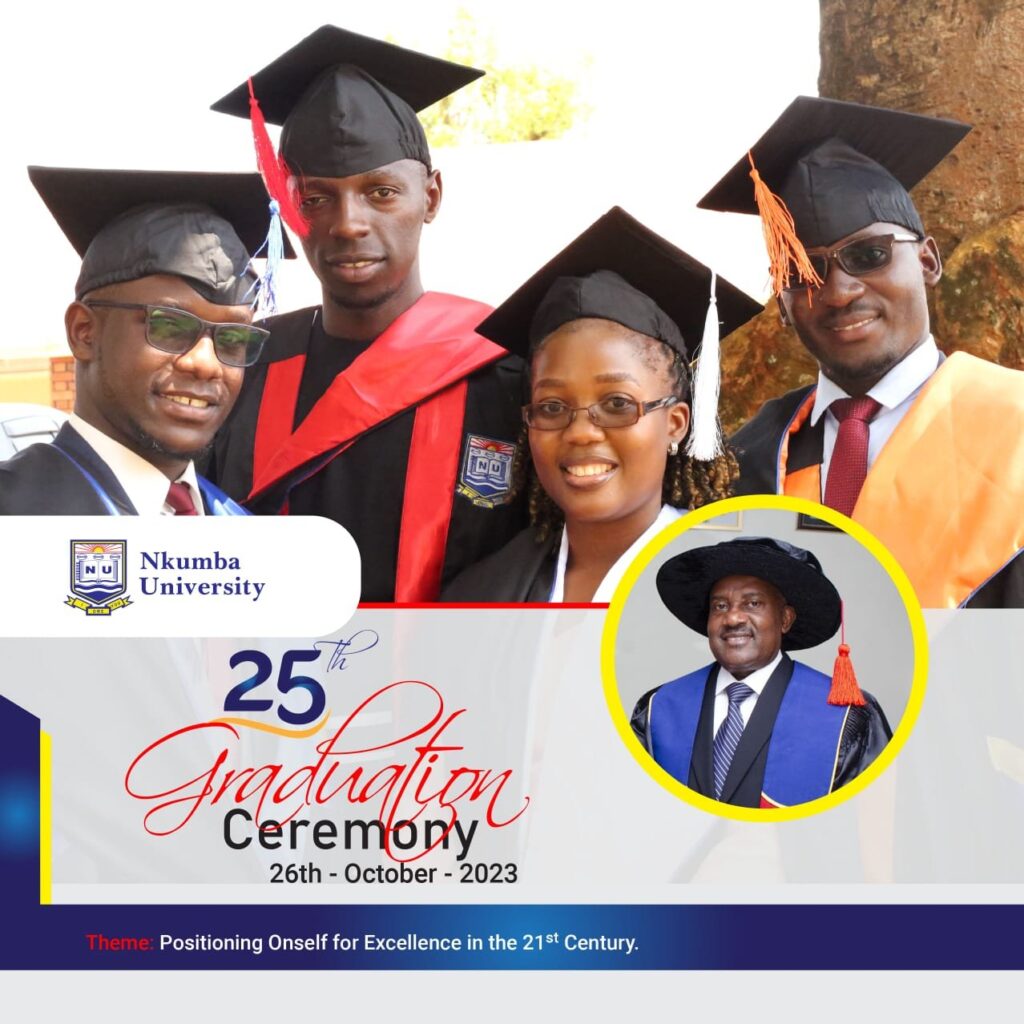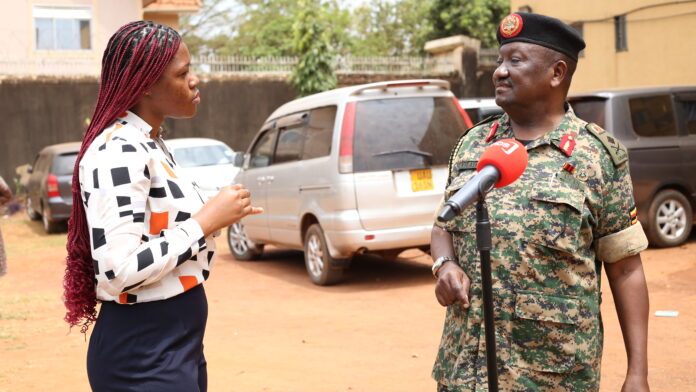Uganda People’s Defence Forces’ (UPDF) spokesperson, Brigadier General Felix Kulayigye, has expressed gratitude for UPDF’s unwavering commitment to fulfilling its constitutional duty, as enshrined under Article 209 of the Constitution of Uganda.
The acknowledgment came in response to concerns raised by Professor Mwambutsya Ndebesa regarding the increasing involvement of the military in civilian production sectors, a phenomenon Professor Ndebesa says “if left unregulated, may lead Uganda down a perilous path reminiscent of situations in countries like Sudan and Egypt.”
This intellectual discourse unfolded during a security conference organized by Nkumba University in partnership with the Security Studies and Analysis Center (SSAC) at Nkumba University’s Kampala Campus.

Under the theme “Does the Security Sector in Uganda Undertake Deliberate Efforts to Promote Human Security?”, the conference gathered key security figures, including Army Spokesperson Brigadier Felix Kukayigye, Police Political Commissar CPC Namutebi Hadija, Private Security representative Grace Matsiko, and featured Dr. Sarah Bireete, the Executive Director of the Center for Constitutional Governance (CCG), as the keynote speaker.
The debate was meticulously stirred by Nkumba University’s Director of Post-Graduate Studies, Professor Solomon Assimwe.
In his intellectual submission, Professor Mwambutsya Ndebesa raised concerns about the military’s increasing involvement in the supposedly civilian-dominated production sector under the pretext of National Development, ignoring the problematization this could cause.
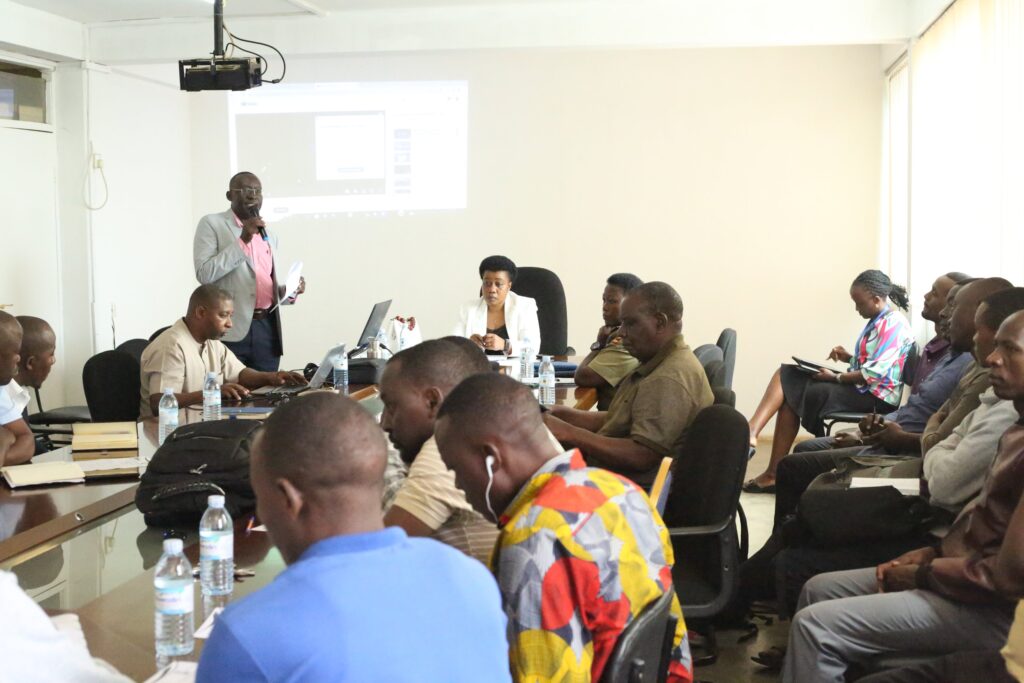
Brigadier General Felix Kulayigye responded to Professor Ndebesa’s concerns by emphasizing the constitutional requirement in Article 209, which empowers UPDF to engage in productive activities for the development of the Country.
The discussion surrounding UPDF’s role in the economy became a pivotal point in the discourse about Uganda’s security sector and its impact on the nation’s overall well-being.
Article 209 stipulates the functions of the defense forces. Section (d) mandates the Force, “to engage in productive activities for the development of Uganda.”
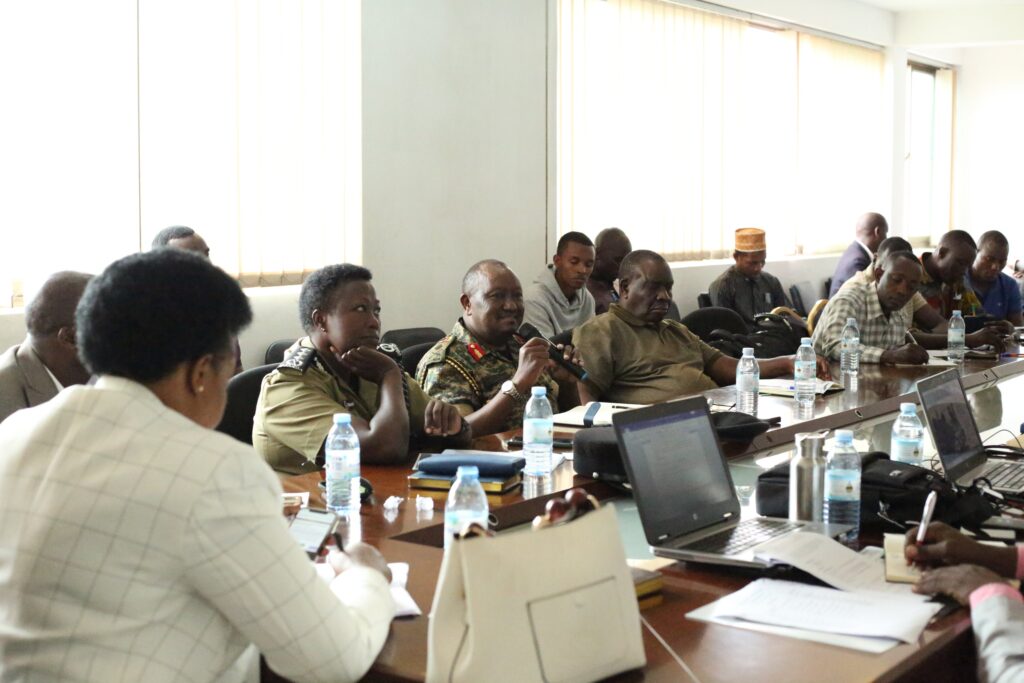
Experts condemned the deployment of UPDF officers in key government parastatals, citing potential state capture as a significant concern.
Civil society leader, Dr. Sarah Bireete, warned against security forces’ excessive involvement in production, expressing fears that it could lead to state capture and divert the force from its primary role of safeguarding Ugandans.” such may lead to state capture and divert the Force from its pricey role of safeguarding Ugandans, “. Said Dr. Bireete.
There is growing concern that security operatives may be inclined to serve the interests of their commander-in-chief other than Uganda’s.
Dr. Bireete further criticized presidential directives that may not align with existing legal frameworks, emphasizing the need for alignment with Article 99 of the Constitution, which outlines the executive authority vested in the President.
“When parliament launched investigations into the supposed digital number plates, a directive came from the president to stop the investigations,” she revealed.
Adding that “Article 99 assigns the president the role of protecting the law, not making laws,” emphasizing that “presidential directives should align with existing legal framers.”
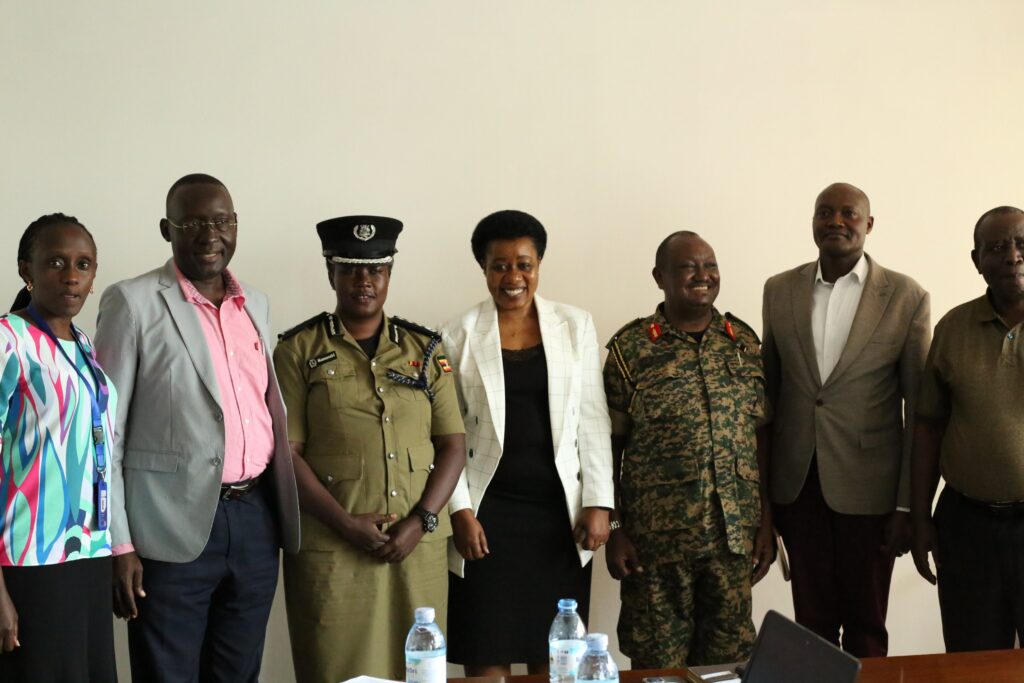
As stipulated in the constitution of Uganda, Article 99 outlines the functions of the Executive authority. Section, “(1) The executive authority of Uganda is vested in the President and shall be exercised by this Constitution and the laws of Uganda.”
Concerns about civil rights and freedoms, particularly the right to assemble, were also discussed.
The right to assemble has faced threats, as exemplified by recent events in western Uganda where for the first time in many years, the opposition party, National Unity Platform (NUP) was allowed to carry out processions without interference.
These developments prompted reflections on the delicate balance between security and civil liberties.
Namutebi Hadija, Uganda Police- Chief Political Commissar emphasized the importance of open discussions on matters affecting Ugandans, emphasizing that “one’s rights should not infringe on the rights of others. “
She stressed the need for police “intervention when public order is at risk.”
The conference yielded hopes that intellectual discourses like this would contribute to a more secure and democratic Uganda.
Dr. Ann Abaho, speaking on behalf of the Vice Chancellor of Nkumba University, emphasized the significance of such dialogues in bridging the gap between security entities and civil society and also, in creating a platform for students to engage with key security players in the country.
It was also mentioned that recruiting educated individuals remains a priority to enhance the capabilities of security organizations.
Ugandan Army continues to amass enterprise powers through several establishments said to be tailored for the promotion of Peace and Security in the country.
National Enterprise Corporation was established in 1989 by an Act of Parliament to serve as a commercial arm of the Ministry of Defence /Uganda Defence Forces and to produce goods and services that are beneficial to the Defence Forces and the general public.
This has since seen more establishments such as, The UPDF Engineering Brigade in 2007, Operation wealth Creation in 2013 and the recent UPDF private security firm all maned by the army.
The impading threats this imposes is what remains uncertain.
